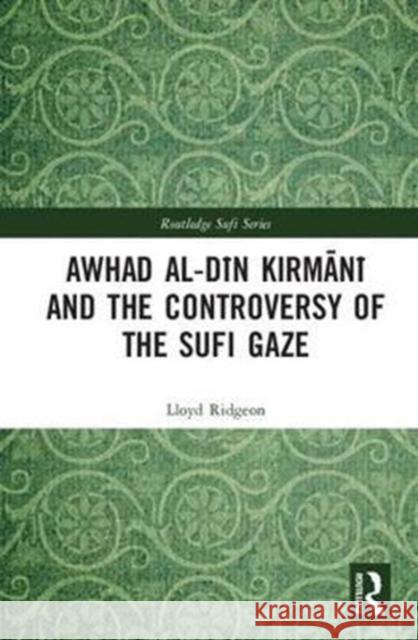Awhad Al-Din Kirmani and the Controversy of the Sufi Gaze » książka
Awhad Al-Din Kirmani and the Controversy of the Sufi Gaze
ISBN-13: 9781138057135 / Angielski / Twarda / 2017 / 290 str.
Awhad Al-Din Kirmani and the Controversy of the Sufi Gaze
ISBN-13: 9781138057135 / Angielski / Twarda / 2017 / 290 str.
(netto: 672,22 VAT: 5%)
Najniższa cena z 30 dni: 654,86
ok. 22 dni roboczych
Bez gwarancji dostawy przed świętami
Darmowa dostawa!
Awḥad al-Dīn Kirmānī (d. 1238) was one of the greatest and most colourful Persian Sufis of the medieval period; he was celebrated in his own lifetime by a large number of like-minded followers and other Sufi masters. And yet his form of Sufism was the subject of much discussion within the Islamic world, as it elicited responses ranging from praise and commendation to reproach and contempt within a generation of his death. This book assesses the few comments written about Kirmānī by his contemporaries, and also provides a translation from his Persian hagiography which was written in the generation after his death. This anonymous hagiography presents a series of anecdotes that portray Kirmānī's "virtues." The book provides an investigation into Kirmānī the individual, but the story has significance that extends much further. The controversy of his form of Sufism occurred at a crucial time in the evolution of Sufi piety and theology. The research herein situates Kirmānī within this critical period, and assesses the various perspectives taken by his contemporaries and near contemporaries. Such views reveal much about the dynamics and developments of Sufism during the 13th and 14th centuries, when the Sufi orders (ṭurūq, s. ṭarīqa) began to emerge, and which gave individual Sufis a much more structured and ordered method of engaging in piety, and of presenting the Sufi tradition to society at large. As the first attempt in a Western language to appreciate the significant contribution that Kirmānī made to the medieval Persian Sufi tradition, this book will appeal to students and scholars of Sufi Studies, as well as those interested in Middle Eastern History.











